- Home
- George R. R. Martin
Fevre Dream Page 5
Fevre Dream Read online
Page 5
Abner Marsh didn’t waste time looking at books, though. Next to the bookcase was a wooden wine rack, with twenty or thirty bottles lying neatly on their sides. He went directly to it and pulled out a bottle. The bottle was unlabeled, and the liquid within was a somber red, so dark it was almost black. A cap of shiny black wax sealed the cork on. “You got a knife?” he asked York, turning with the bottle in his hand.
“I don’t think you’d care much for that vintage, Abner,” York said. He was holding a tray with two silver goblets and a crystal decanter. “I have some excellent sherry here. Why don’t we have that instead?”
Marsh hesitated. York’s sherry was usually just fine and he hated to pass it up, but knowing Joshua he figured that any wine he kept a private stock of had to be superlative. Besides, he was curious. He shifted the bottle from one hand to the other. The liquid within flowed slowly, creeping along languidly like some sweet liqueur. “What is this anyway?” Marsh asked, frowning.
“A home brew of sorts,” York replied. “Part wine and part brandy and part liqueur, tasting like none of them. A rare drink, Abner. My companions and I have a fondness for it, but most people find it not to their liking. I’m sure you’d prefer the sherry.”
“Well,” Marsh said, hefting the bottle, “anything you drink is probably just fine for me, Joshua. You do serve up good sherry, though, that’s true enough.” He brightened. “Say, we’re in no hurry, and I got myself a fierce thirst. Why don’t we try both?”
Joshua York laughed, a laugh of pure spontaneous delight, deep and musical. “Abner,” he said, “you are singular, and most formidable. I like you. You, however, will not like my little drink. Still, if you insist, we shall have both.”
They settled themselves into the two leather chairs, York putting the tray on the low table between them. Marsh handed over the bottle of wine, or whatever it was. From somewhere within the pristine folds of his white suit, York produced a skinny little knife, with an ivory handle and a long silver blade. He sliced away the wax, and with one single deft twist flicked the knife point into the cork and brought it out with a pop. The liquor poured slowly, flowing like red-black honey into the silver goblets. It was opaque, and seemed full of tiny black specks. Strong, though; Marsh lifted his goblet and sniffed at it, and the alcohol in it brought tears to his eyes.
“We ought to have a toast,” York said, lifting his own goblet.
“To all the money we’re going to make,” Marsh joked.
“No,” York said seriously. Those demon gray eyes of his had a kind of grave melancholy in them, Marsh thought. He hoped that York wasn’t going to start reciting poetry again. “Abner,” York continued, “I know what the Fevre Dream means to you. I want you to know that she means much to me, as well. This day is the start of a grand new life for me. You and I, together, we made her what she is, and we shall go on to make her a legend. I have always admired beauty, Abner, but this is the first time in a long life that I have created it, or helped in its creation. It is a good feeling, to bring something new and fine into the world. Particularly for me. And I have you to thank for it.” He lifted his goblet. “Let us drink for the Fevre Dream and all she represents, my friend—beauty, freedom, hope. To our boat and a better world!”
“To the fastest steamer on the river!” Marsh replied, and they drank. He almost gagged. York’s private drink went down like fire, searing the back of his throat and spreading warm tendrils in his innards, but there was a kind of cloying sweetness to it as well, and a hint of an unpleasant smell that all its strength and sweetness could not quite conceal. Tasted like something had rotted in the bottle, he thought.
Joshua York drained his own goblet in a single long motion, his head thrown back. Then he set it aside and looked at Marsh and laughed again. “The look on your face, Abner, is wonderfully grotesque. Don’t feel you have to be polite. I warned you. Why don’t you have some sherry?”
“I believe I will,” Marsh replied, “I do believe I will.”
Later, when two glasses of sherry had wiped the aftertaste of York’s drink from Marsh’s mouth, they got to talking.
“What is our next step after St. Louis, Abner?” York asked.
“The New Orleans trade. Ain’t no other run for a boat as grand as this one.”
York gave an impatient shake of his head. “I know that, Abner. I was curious about how you intend to realize your dream of beating the Eclipse. Will you seek her out and issue a challenge? I’m willing, so long as it does not delay us unduly or take us out of our way.”
“Wish it were that simple, but it ain’t. Hell, Joshua, there’s thousands of steamers on the river, and all of them would like to beat the Eclipse. She’s got runs to make, just like we do, passengers and freight to move. Can’t be just racing all the time. Anyhow, her cap’n be a fool to lissen to any challenge from us. Who’re we anyway? Some new steamer fresh out of New Albany that nobody ever heard of. Eclipse’d have everything to lose and nothin’ to gain by racing us.” He emptied another glass of sherry and held it out to York for a refill. “No, first we got to work our trade, build ourselves a reputation. Get known up and down the river as a fast boat. Pretty soon folks will get to talkin’ about how fast she is, and get to wonderin’ how Fevre Dream and Eclipse would match up. Maybe we run into her on the river a couple times, say, and pass her up. We build up the talk, and folks start to betting. Maybe we make some of the runs the Eclipse makes, and we beat her time. A fast steamer gets the trade, y’know. The planters and shippers and such, they want to get their wares to market soon as they can, so they go with the fastest boat around. And passengers, why they all love to ride on a famous boat if they got the money. So what happens, you see, is that after a time people start thinking we’re the fastest boat on the lower river, and the trade starts moving our way, and the Eclipse gets hurt a little where it counts, in the purse. Then you just watch how easy we get us a race, to prove once and for all who’s faster.”
“I see,” said York. “Is this run to St. Louis going to start our reputation, then?”
“Well, I ain’t trying for no record time. She’s a new boat, and we got to break her in. Don’t even have our regular pilots on board yet, no one is real familiar with how she handles, and we got to give Whitey time to work out all the little problems with the engines and get his strikers trained proper.” He set down his empty glass. “Don’t mean we can’t start in some other ways, though,” he said, smiling. “Got something or other in mind along those lines. You’ll see.”
“Good,” said Joshua York. “More sherry?”
“No,” Marsh said. “We ought to get on down to the saloon, I think. I’ll buy you a drink at our bar. Guarantee you it’ll taste better than that damned stuff of yours.”
York smiled. “My pleasure,” he said.
That night was not like other nights for Abner Marsh. It was a magic night, a dream. There seemed to be at least forty or fifty hours in it, he could have sworn, and each of them was priceless. He and York were up till dawn, drinking and talking up a storm, wandering all over the wonder of a boat they had built. The day after, Marsh woke with such a head that he could barely recall half of what he’d done the night before. But some moments were indelible in his memory.
He remembered entering the grand saloon, and it was better than entering the finest hotel in the world. The chandeliers were brilliant, lamps aglow and prisms glittering. The mirrors made the long narrow cabin seem twice as wide as it really was. A crowd was gathered around the bar, talking politics and such, and Marsh joined them for a while and listened to them complain about abolitionists and argue over whether Stephen A. Douglas ought to be president, while York said hello to Smith and Brown, who were at one of the tables playing cards with some planters and a notorious gambler. Someone was tinkling on the grand piano, stateroom doors opened and closed all the time, and the whole place was bright with light and laughter.
Later they went down to a different world on the main deck; cargo piled everywh
ere, roustabouts and deckers asleep on coils of rope and bags of sugar, a family gathered around a little fire they’d built cooking something or other, a drunk passed out behind the stairs. The engine room was awash in the hellish red glow of the furnaces, and Whitey was in the middle of it all, with his shirt soaked by sweat and grease in his beard, bellowing at his strikers to be heard above the hiss of the steam and the chunkachunka of the wheels churning water. The rods were awesome, moving back and forth in their long powerful strokes. They watched for a while, York and he, until the heat and smell of machine oil got to be too much for them.
Some time later they were up on the hurricane deck, passing a bottle between them, strolling and talking in their own cool wind. The stars were bright as a lady’s diamonds overhead, the Fevre River banner was flapping on both fore and verge flagpoles, and the river around them was blacker than the blackest slave Marsh had ever seen.
They ran all night, Daly standing the long watch up in the pilot house, keeping them moving at a smart clip—though nothing to what they could do if pressed, Marsh knew—along the dark Ohio, with nothingness all around them. It was a charmed run, with no snags or sawyers or sandbars to bedevil them. Only twice did they have to send out a yawl ahead of them for soundings, and both times they found good water when they dropped lead, and the Fevre Dream steamed on. A few houses were glimpsed on the shore, most dark and shuttered for the night, but one with a light burning in a high window. Marsh wondered who was awake up there, and what they thought when the steamer went on by. She must have been a fine sight, with her decks all lit and the music and laughter drifting out over the water, the sparks and smoke from her chimneys, and her name big on the wheelhouse, Fevre Dream done all in thick fancy blue lettering with silver trim around it. He almost wished he was on shore just to see it.
The big excitement of the night came just before midnight, when they first sighted another steamer churning water ahead of them. When Marsh saw, he took York by the elbow and led him on up to the pilot house. It was crowded up there, Daly still at the wheel, sipping coffee, two other pilots and three passengers sitting on the couch behind him. The pilots weren’t nobody hired by Marsh, but pilots rode free if they wanted to, that was a custom of the river, and they usually rode in the pilot house to chat with the man at the wheel and keep up on the river. Marsh ignored them. “Mister Daly,” he said to his pilot, “there’s a steamer up ahead.”
“I see it, Cap’n Marsh,” Daly replied with a laconic grin.
“Wonder what boat that is? You got any idea, Daly?” Whatever boat it was, it wasn’t much; some squat stern-wheeler with a pilot house square as a cracker box.
“Sure don’t,” the pilot replied.
Abner Marsh turned to Joshua York. “Joshua,” he said, “you’re the real captain, now, and I don’t want to be givin’ you too many suggestions. But the truth is, I’m awful curious as to what steamer that is on up ahead of us. Why don’t you tell Daly here to catch her for us, so I can relax a bit.”
York smiled. “Certainly,” he said. “Mister Daly, you heard Captain Marsh. Do you think the Fevre Dream can catch that boat on ahead?”
“She can catch anything,”the pilot said. He called down to the engineer for more steam, and pulled the steam whistle again, and the wild banshee scream echoed over the river, as if to warn the steamer up ahead that the Fevre Dream was coming after her.
The blast was enough to bring all the passengers out of the main saloon onto the deck. It even got the deck passengers up off their bags of flour. A couple of passengers came wandering up and tried to enter the pilot house, but Marsh chased ’em all down below again, along with the three who’d already been up there. As passengers will, all of them rushed to the front of the boat, and later to the larboard side, when it became clear that was the side they’d pass the other boat on. “Damn passengers,” Marsh muttered to York. “Never will trim boat. One of these days they’ll all rush to the same side and tip some poor steamer right on over, I swear it.”
For all his complaining, Marsh was delighted. Whitey was chucking in more wood down below, the furances were roaring, and the big wheels moved faster and faster. It was over in hardly no time at all. The Fevre Dream seemed to eat up the miles between her and the other boat, and when she passed her a ragged cheer came up from the lower decks, sweet music to Marsh’s ears.
As they surged past the small stern-wheeler, York read her name off the pilot house. “She seems to be the Mary Kaye,”he said.
“Well, boil me for an egg!” Marsh said.
“Is she a well-known boat?” York asked.
“Hell no,” said Marsh. “I never heard of her. Can you beat that?” Then he laughed uproariously and clapped York on the back, and before long everyone in the pilot house was laughing.
Before the night was over, the Fevre Dream had caught and passed a half-dozen steamers, including one side-wheeler near as big as she was, but it never got as exciting as that first time, catching the Mary Kaye. “You wanted to know how we’d begin it,” Marsh said to York when they left the pilot house. “Well, Joshua, it’s begun.”
“Yes,” said York, glancing back behind them, where the Mary Kaye was growing small in the distance. “Indeed it has.”
CHAPTER FIVE
Aboard the Steamer Fevre Dream,
Ohio River,
July 1857
Headache or no, Abner Marsh was too good a riverman to sleep away the day, especially a day as important as this one. He sat up in bed around eleven, after a scant few hours sleep, splashed some tepid water on his face from the basin on the nightstand, and dressed. There was work to be done, and York wouldn’t be up and around till dusk. Marsh set his cap on his head, scowled at himself in the mirror and fluffed out his beard a little, then gathered up his walking stick and lumbered on down from the texas to the boiler deck. He visited the washrooms first, then ducked back to the kitchen. “Missed breakfast, Toby,” he said to the cook, who was already preparing dinner. “Have one of your boys fix me up a half-dozen eggs and a slab of ham, and send it on up to the texas, will you? Coffee, too. Lots of coffee.”
In the grand saloon, Marsh had a quick drink or two, which made him feel somewhat better. He mumbled a few polite words at passengers and waiters, then hastened back to the texas to wait for his food.
After he’d eaten, Abner Marsh felt like his old self again.
He climbed on up to the pilot house after breakfast. The watch had changed, and the other pilot was at the wheel, with only one of the freeloaders keeping him company. “Morning, Mister Kitch,” Marsh said to his pilot. “How’s she drawin’?”
“I ain’t complainin’,” the pilot replied. He glanced at Marsh. “This here boat of yours is a frisky one, Cap’n. You take her down to New Orleans, you better get yourself some good pilots. She takes a good hand at the wheel, she does.”
Marsh nodded. That wasn’t unexpected; frequently the faster boats were hard to handle. It didn’t bother him. No pilot who didn’t know what he was about was going to get anywhere near the Fevre Dream’s wheel.
“What kind of time we makin’?” Marsh asked.
“Smart enough,” the pilot replied with a shrug. “She can do better, but Mister Daly said you weren’t in no hurry, so we’re just lazing along.”
“Put in at Paducah when we get there,” Marsh ordered. “Got a couple passengers to set off and some freight to discharge.” He spent a few minutes chatting with the pilot and finally went on back down to the boiler deck.
The main cabin had been set up for dinner. Bright noon sunlight was pouring from the skylights in a cascade of colors, and beneath it a long row of tables ran the length of the cabin. The waiters were setting silverware and china; crystal glasses gleamed brilliantly in the light. From the kitchen, Marsh caught hints of the most marvelous, mouth-watering smells. He paused and found himself a menu, glanced over it and decided he was still hungry. Besides, York wasn’t about yet, and it was only fitting that one of the captains join the ca
bin passengers and other officers for dinner.
The dinner, Marsh thought, was excellent. Marsh put away a big plate of roast lamb in parsley sauce, a small pigeon, lots of Irish potatoes and green corn and beets, and two pieces of Toby’s famous pecan pie. By the time dinner was over, he was feeling quite amiable. He even gave the preacher permission to give a little lecture on bringing Christianity to the Indians, though he didn’t normally hold with no bible-thumping on his boats. Had to keep the passengers amused somehow, Marsh figured, and even the prettiest scenery got boring after a while.
Early in the afternoon, the Fevre Dream put into Paducah, which lay on the Kentucky side of the river, where the Tennessee emptied into the Ohio. It was their third stop on the run, but the first lengthy one. They’d put in briefly at Rossborough during the night, to drop off three passengers, and they’d taken on wood and a small amount of freight at Evansville while Marsh had been asleep. But they had to discharge twelve tons of bar iron at Paducah, as well as some flour and sugar and books, and there was supposed to be some forty or fifty tons of lumber waiting there to be loaded. Paducah was a big lumbering town, with log rafts all the time coming down the Tennessee, clogging up the river and getting in the way of the steamboats. Like most steamboatmen, Marsh didn’t have much use for rafters. Half the time they didn’t show no lights at night, and they got run over by some unlucky steamer, and then they had the gumption to cuss and yell and throw things.

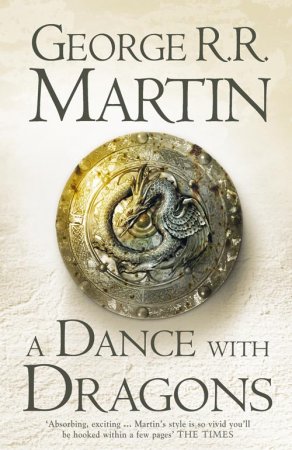 A Dance with Dragons
A Dance with Dragons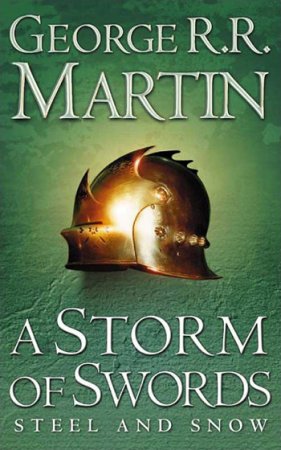 A Storm of Swords
A Storm of Swords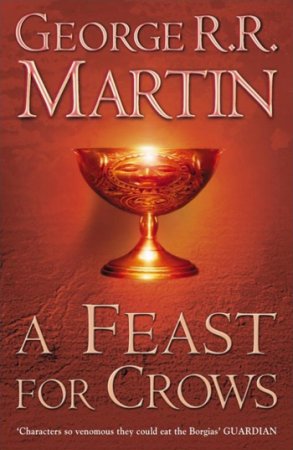 A Feast for Crows
A Feast for Crows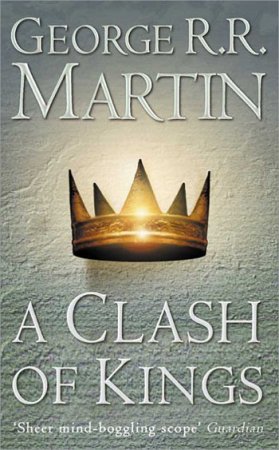 A Clash of Kings
A Clash of Kings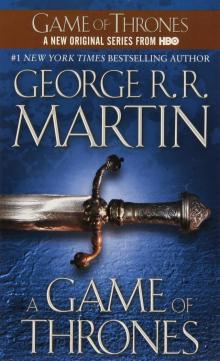 A Game of Thrones
A Game of Thrones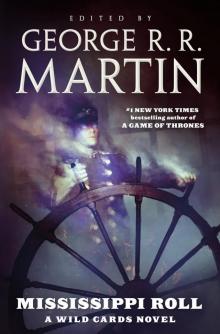 Mississippi Roll
Mississippi Roll Wild Cards V: Down and Dirty
Wild Cards V: Down and Dirty Busted Flush
Busted Flush When the Devil Drives
When the Devil Drives Dying of the Light
Dying of the Light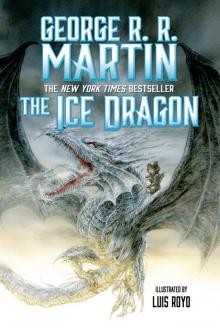 The Ice Dragon
The Ice Dragon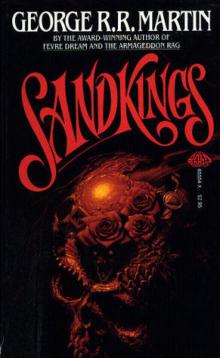 Sandkings
Sandkings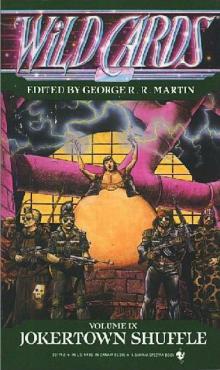 Jokertown Shuffle
Jokertown Shuffle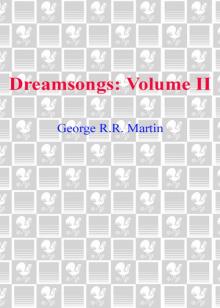 Dreamsongs. Volume II
Dreamsongs. Volume II Deuces Down
Deuces Down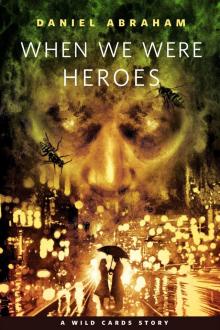 When We Were Heroes
When We Were Heroes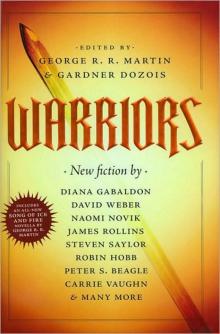 Warriors
Warriors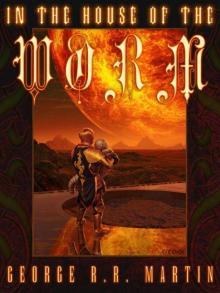 In the House of the Worm
In the House of the Worm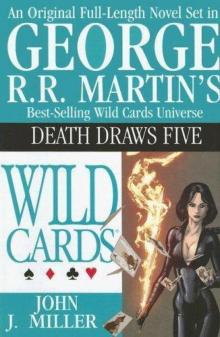 Death Draws Five
Death Draws Five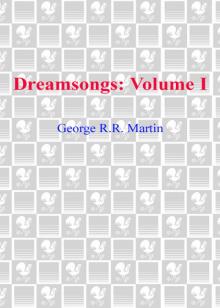 Dreamsongs. Volume I
Dreamsongs. Volume I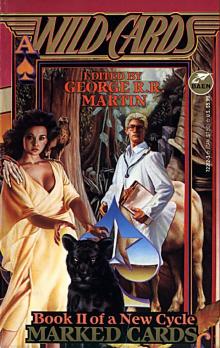 Marked Cards
Marked Cards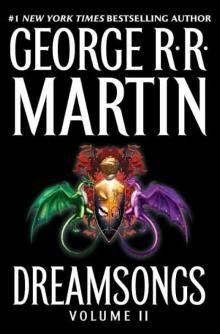 Dreamsongs
Dreamsongs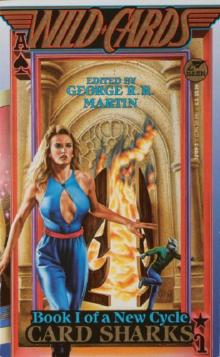 Card Sharks
Card Sharks Dangerous Women
Dangerous Women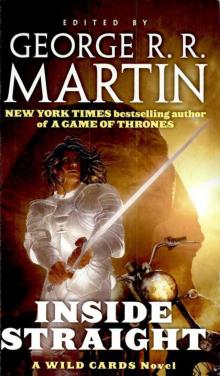 Inside Straight
Inside Straight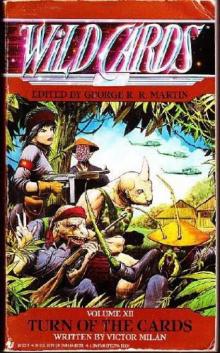 Turn of the Cards
Turn of the Cards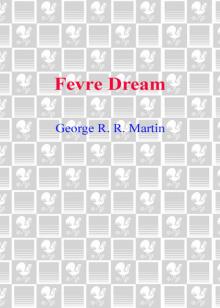 Fevre Dream
Fevre Dream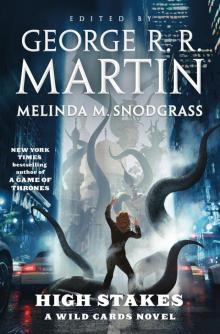 High Stakes: A Wild Cards Novel
High Stakes: A Wild Cards Novel Windhaven
Windhaven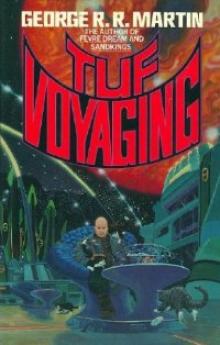 Tuf Voyaging
Tuf Voyaging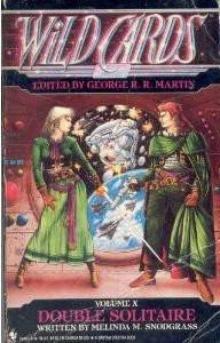 Double Solitaire
Double Solitaire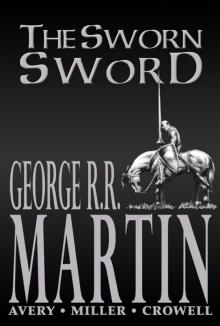 The Sworn Sword
The Sworn Sword Low Chicago
Low Chicago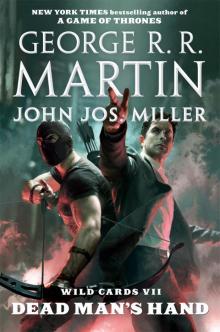 Dead Man's Hand
Dead Man's Hand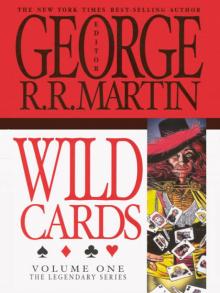 Wild Cards
Wild Cards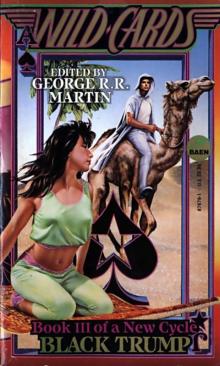 Black Trump
Black Trump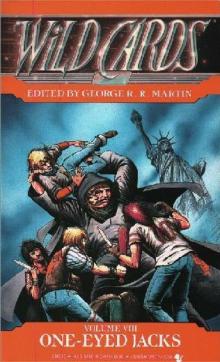 One Eyed Jacks
One Eyed Jacks Wild Cards: Aces Abroad
Wild Cards: Aces Abroad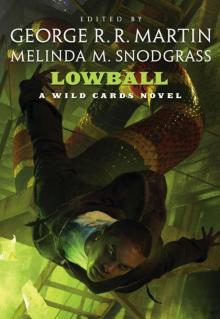 Lowball: A Wild Cards Novel
Lowball: A Wild Cards Novel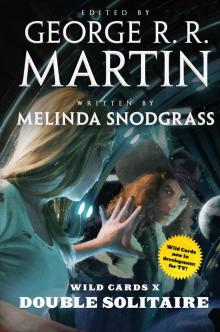 Double Solitaire (2019 Edition)
Double Solitaire (2019 Edition)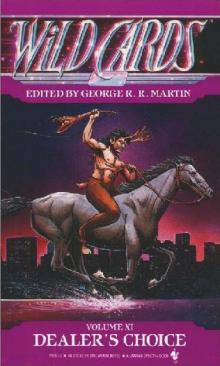 Dealer's Choice
Dealer's Choice Ace in the Hole
Ace in the Hole A Song for Lya: And Other Stories
A Song for Lya: And Other Stories Three Kings
Three Kings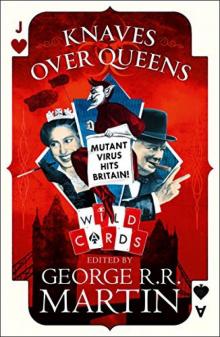 Knaves Over Queens
Knaves Over Queens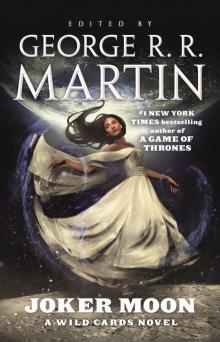 Joker Moon
Joker Moon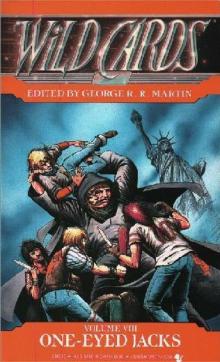 One Eyed Jacks wc-8
One Eyed Jacks wc-8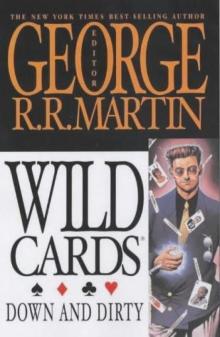 Down And Dirty wc-5
Down And Dirty wc-5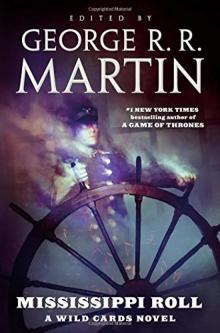 Mississippi Roll_A Wild Cards Novel
Mississippi Roll_A Wild Cards Novel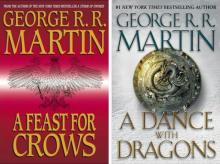 A Feast for Dragons
A Feast for Dragons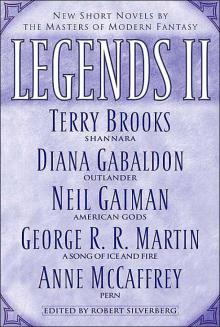 The Sworn Sword ttodae-2
The Sworn Sword ttodae-2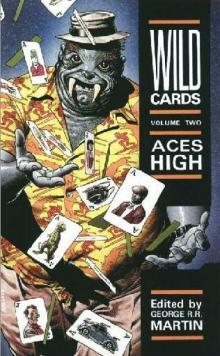 Aces High wc-2
Aces High wc-2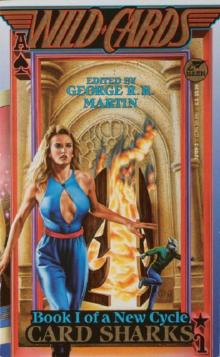 Wild Cards 13 : Card Sharks
Wild Cards 13 : Card Sharks Way of the Wizard
Way of the Wizard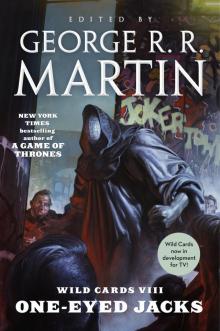 Wild Cards VIII: One-Eyed Jacks
Wild Cards VIII: One-Eyed Jacks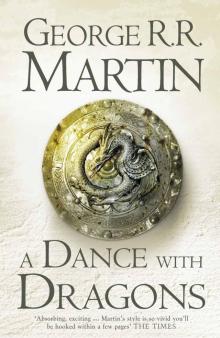 A Dance With Dragons: Book 5 of A Song of Ice and Fire (Song of Ice & Fire 5)
A Dance With Dragons: Book 5 of A Song of Ice and Fire (Song of Ice & Fire 5) The Princess and The Queen, Or, The Blacks and The Greens (a song of ice and fire)
The Princess and The Queen, Or, The Blacks and The Greens (a song of ice and fire)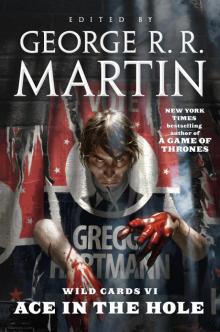 Wild Cards VI--Ace in the Hole
Wild Cards VI--Ace in the Hole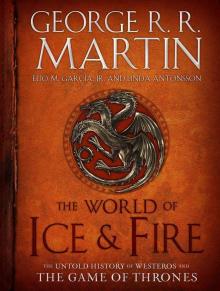 The World of Ice & Fire: The Untold History of Westeros and the Game of Thrones (A Song of Ice and Fire)
The World of Ice & Fire: The Untold History of Westeros and the Game of Thrones (A Song of Ice and Fire)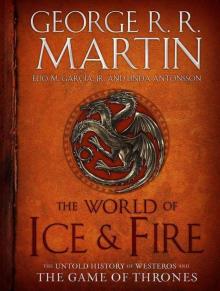 The World of Ice & Fire: The Untold History of Westeros and the Game of Thrones
The World of Ice & Fire: The Untold History of Westeros and the Game of Thrones Busted Flush wc-19
Busted Flush wc-19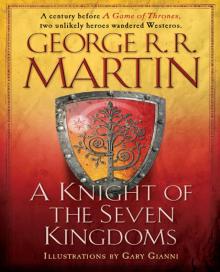 A Knight of the Seven Kingdoms
A Knight of the Seven Kingdoms Nightflyers: The Illustrated Edition
Nightflyers: The Illustrated Edition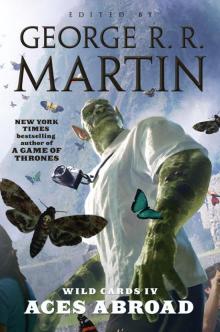 Wild Cards IV
Wild Cards IV Portraits of His Children
Portraits of His Children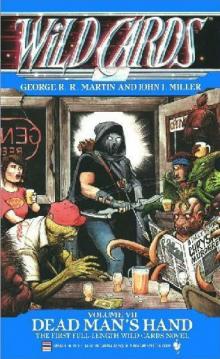 Dead Mans Hand wc-7
Dead Mans Hand wc-7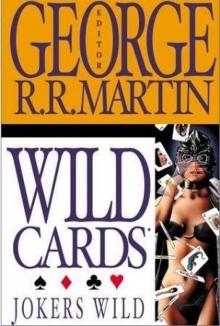 Jokers Wild wc-3
Jokers Wild wc-3 The Lonely Songs of Laren Dorr
The Lonely Songs of Laren Dorr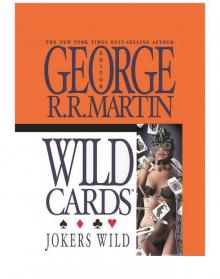 Wild Cards III: Jokers Wild
Wild Cards III: Jokers Wild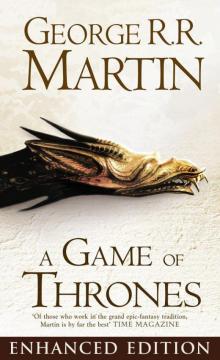 A Game of Thrones Enhanced Edition
A Game of Thrones Enhanced Edition Nightflyers & Other Stories
Nightflyers & Other Stories Armageddon Rag
Armageddon Rag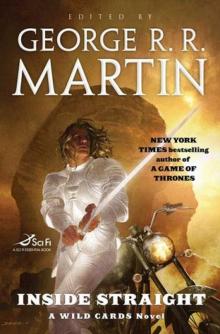 Wild Cards: Inside Straight
Wild Cards: Inside Straight A Song for Lya
A Song for Lya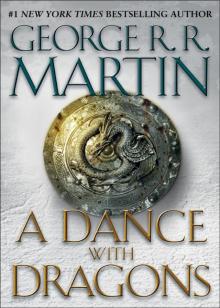 A Dance with Dragons: A Song of Ice and Fire: Book Five
A Dance with Dragons: A Song of Ice and Fire: Book Five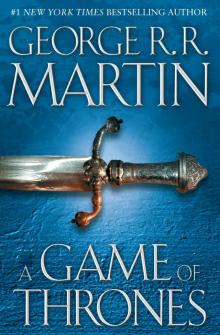 Song of Fire & Ice 01 - A Game of Thrones
Song of Fire & Ice 01 - A Game of Thrones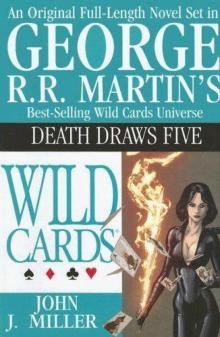 Death Draws Five wc-17
Death Draws Five wc-17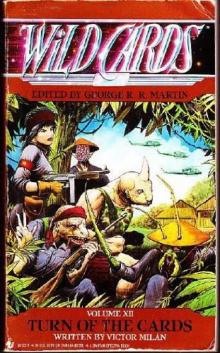 Turn of the Cards w-12
Turn of the Cards w-12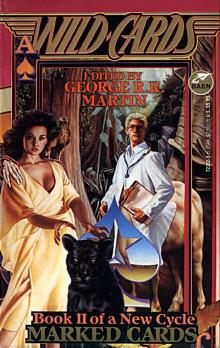 Wild Cards 14 - Marked Cards
Wild Cards 14 - Marked Cards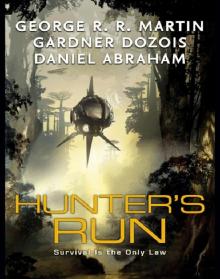 Hunter's Run
Hunter's Run The Glass Flower
The Glass Flower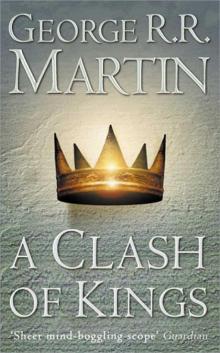 A Clash of Kings asoiaf-2
A Clash of Kings asoiaf-2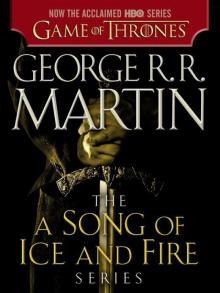 A Game of Thrones 5-Book Bundle: A Song of Ice and Fire Series: A Game of Thrones, A Clash of Kings, A Storm of Swords, A Feast for Crows, and A Dance with Dragons (Song of Ice & Fire)
A Game of Thrones 5-Book Bundle: A Song of Ice and Fire Series: A Game of Thrones, A Clash of Kings, A Storm of Swords, A Feast for Crows, and A Dance with Dragons (Song of Ice & Fire) Ace In The Hole wc-6
Ace In The Hole wc-6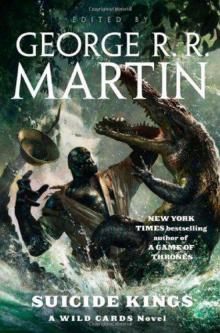 Suicide Kings wc-20
Suicide Kings wc-20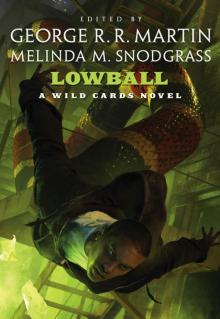 Lowball
Lowball Aces Abroad wc-4
Aces Abroad wc-4 George R. R. Martin's a Game of Thrones 4-Book Bundle
George R. R. Martin's a Game of Thrones 4-Book Bundle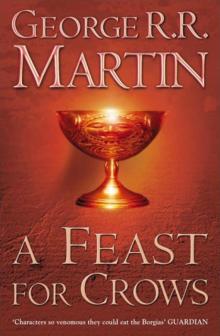 A Feast for Crows asoiaf-4
A Feast for Crows asoiaf-4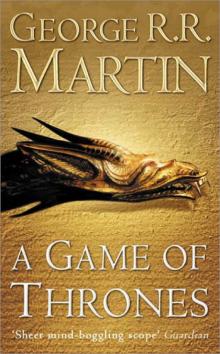 A Game of Thrones asoiaf-1
A Game of Thrones asoiaf-1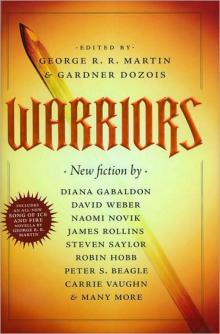 The Mystery Knight ttodae-3
The Mystery Knight ttodae-3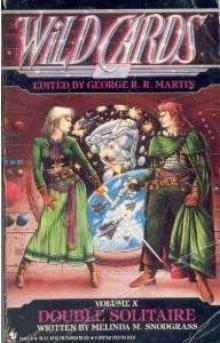 Double Solitaire w-10
Double Solitaire w-10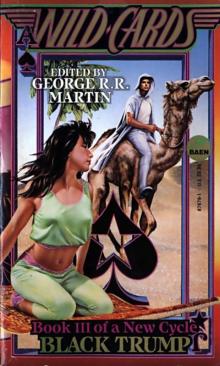 Wild Cards 15 - Black Trump
Wild Cards 15 - Black Trump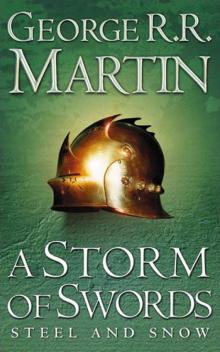 A Storm of Swords asoiaf-3
A Storm of Swords asoiaf-3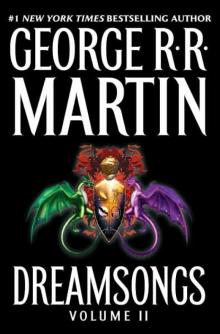 The Hedge Knight ttodae-1
The Hedge Knight ttodae-1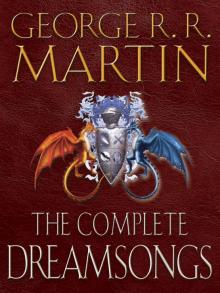 Dreamsongs 2-Book Bundle
Dreamsongs 2-Book Bundle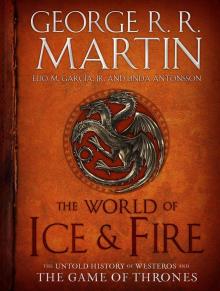 The World of Ice & Fire
The World of Ice & Fire Starlady & Fast-Friend
Starlady & Fast-Friend Old Mars
Old Mars Fantasy For Good: A Charitable Anthology
Fantasy For Good: A Charitable Anthology Wild Cards V
Wild Cards V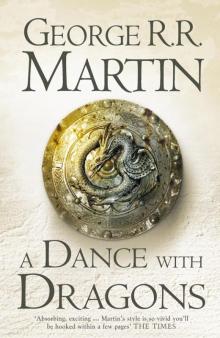 A Dance with Dragons asoiaf-5
A Dance with Dragons asoiaf-5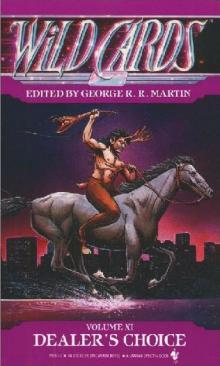 Dealer's Choice w-11
Dealer's Choice w-11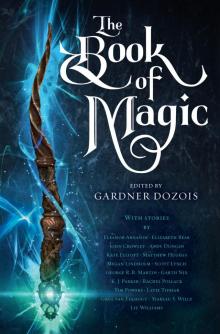 The Book of Magic
The Book of Magic A Game of Thrones 4-Book Bundle
A Game of Thrones 4-Book Bundle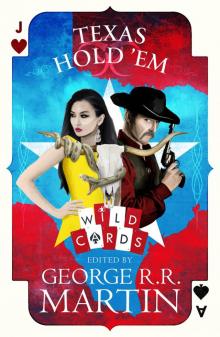 Texas Hold 'Em
Texas Hold 'Em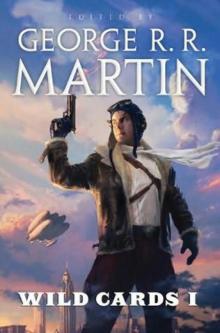 Wildcards wc-1
Wildcards wc-1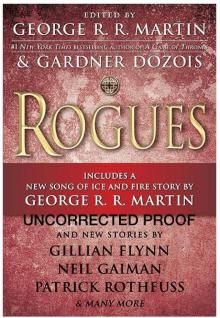 Rogues
Rogues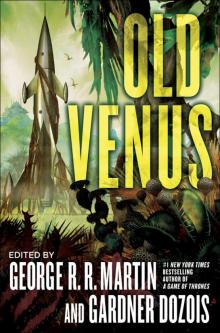 Old Venus
Old Venus